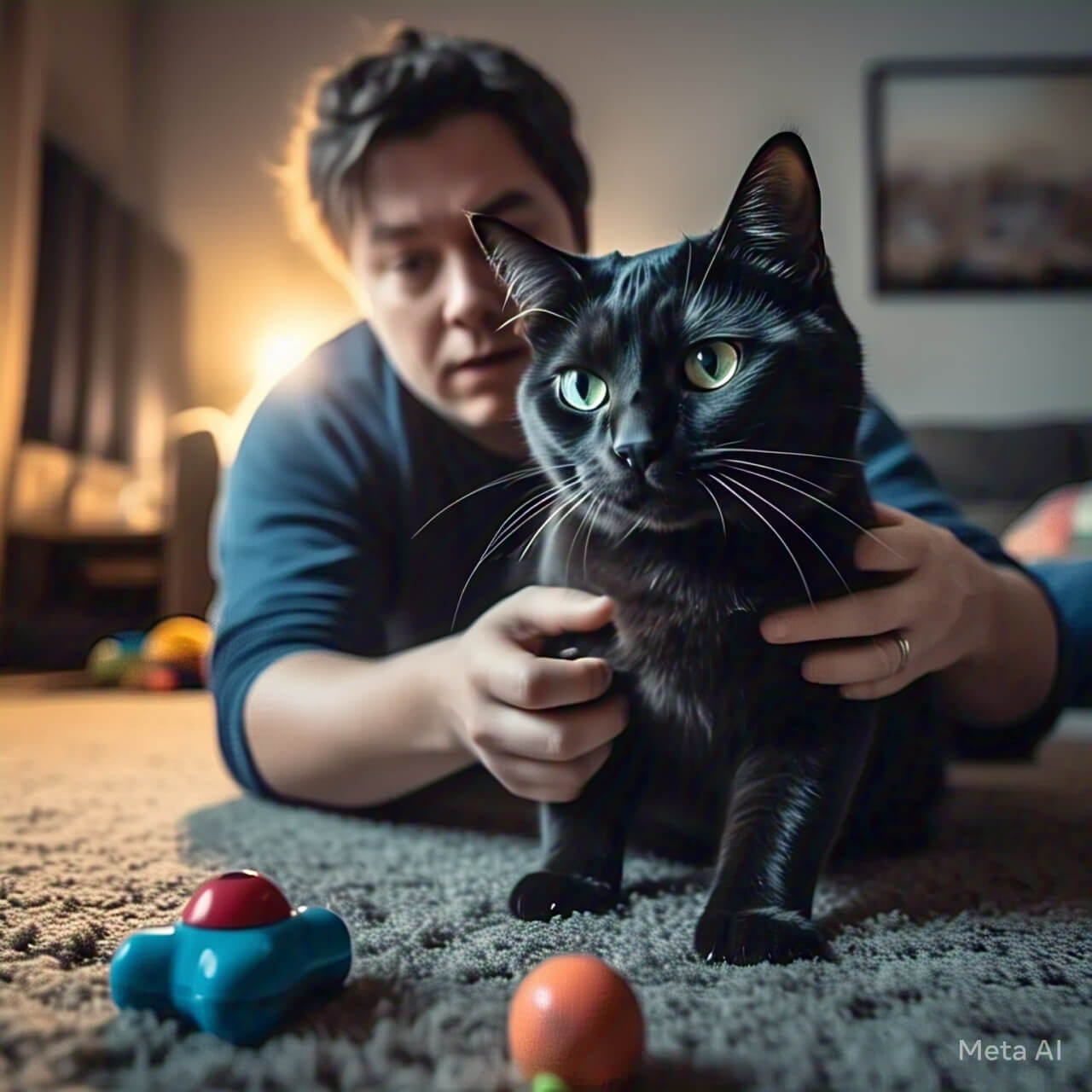How to Stop a Cat from Biting. Cats are playful and loving pets, but sometimes they bite, which can be painful and frustrating. Biting can happen for many reasons—your cat might be scared, overexcited, or just playing too rough. Understanding why your cat bites is the first step to stopping this behavior. Kittens often bite while playing because they don’t know better, but adult cats may bite due to fear or stress. The good news is that with patience and the right training, you can teach your cat to stop biting.
Always stay calm and never punish your cat harshly, as this can make the problem worse. Instead, use positive reinforcement, redirect their energy, and provide toys for them to chew on. If your cat bites suddenly without reason, it might be in pain, so a vet visit is a good idea. By learning your cat’s body language and triggers, you can prevent bites and build a happier relationship with your furry friend.

10 Tips to Stop a Cat from Biting
- Use toys, not hands.
- Say “No” firmly.
- Walk away when biting starts.
- Reward gentle behavior.
- Avoid rough play.
- Provide chew toys.
- Watch for warning signs.
- Give them space when angry.
- Use a spray bottle (lightly).
- Visit a vet if needed.
1. Understand Why Cats Bite
Cats bite for different reasons. Kittens bite because they are learning and playing. Adult cats may bite out of fear, stress, or overstimulation. Some cats bite when they feel threatened, while others do it during rough play. If your cat suddenly starts biting, check for pain or illness. Knowing the cause helps you stop the behavior.
2. Use Toys, Not Hands
Never use your hands as toys—this teaches cats that biting is okay. Instead, give them stuffed mice, feather wands, or chew toys. If they bite your hand, redirect them to a toy. This keeps their teeth away from your skin.
3. Teach Bite Inhibition
Kittens learn bite control from their mother and siblings. If your cat bites too hard, say “Ouch!” and stop playing. This teaches them that biting ends fun time. Be consistent so they learn gentle play.
4. Avoid Rough Play
Wrestling or teasing your cat encourages biting. Play gently and avoid sudden movements. If they get too excited, take a break. Calm play prevents aggressive behavior.
5. Reward Good Behavior
When your cat plays without biting, give treats or praise. Positive reinforcement works better than punishment. They’ll learn that gentle play gets rewards.
6. Watch for Warning Signs
Cats show signs before biting—flattened ears, twitching tail, or growling. If you see these, stop touching them. Giving space prevents bites.
7. Use a Spray Bottle (Lightly)
If your cat bites often, a small spray of water can discourage them. Don’t overuse this—just as a gentle reminder.
8. Provide Chew Toys
Some cats bite because they need to chew. Give them safe rubber or fabric toys. This keeps their teeth busy.
9. Don’t Punish Your Cat
Yelling or hitting makes cats more aggressive. Stay calm and use positive training instead. Fear increases biting.
10. Visit a Vet if Needed
If biting is sudden or aggressive, your cat might be sick. A vet can check for pain or health issues causing the behavior.

FAQs About Cat Biting
| Question | Answer |
|---|---|
| Why does my cat bite me suddenly? | It could be fear, pain, or overstimulation. Watch their body language. |
| How do I stop my kitten from biting? | Use toys, say “No,” and reward gentle play. |
| Is spraying water effective? | Light use can help, but don’t rely on it too much. |
| Should I punish my cat for biting? | No—punishment makes biting worse. Use positive training. |
| When should I see a vet? | If biting is sudden or aggressive, check for health problems. |
By following these tips, you can reduce biting and enjoy a happier bond with your cat.









